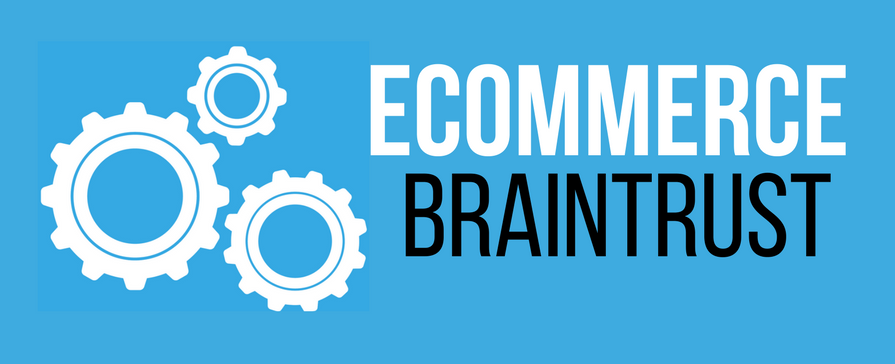The Birth of FBA, Amazon’s Private Label Brands, Antitrust and More With “Amazon Unbound” Author Brad Stone - Episode 189
INTERVIEW WITH BRAD STONE
DESCRIPTION
Today on the Ecommerce Braintrust podcast, we’re joined by a very special guest. Brad Stone, the author of “Amazon Unbound” is here to share some knowledge and insights from his latest book. “Amazon Unbound” is a story of a hard-hitting CEO who created such a fertile corporate culture that even at massive size, it repeatedly shocked its own bureaucracy to invent exhilarating new products. It's also the story of how a leading technology company became so omnipotent over a course of a single decade.
Make sure to tune in to find out more!
Brad is Senior Executive Editor for Global Technology at Bloomberg News where he oversees a team of 65 reporters and editors that covers high-tech companies, startups, cybersecurity, and internet trends around the world. Over the last ten years, as a writer for Bloomberg Businessweek, he’s authored over two dozen cover stories on companies such as Apple, Google, Amazon, Softbank, Twitter, Facebook, and the Chinese internet juggernauts Didi, Tencent, and Baidu.
Brad Stone is the author of four books Amazon Unbound: Jeff Bezos and the Invention of a Global Empire, The Everything Store: Jeff Bezos and the Age of Amazon, The Upstarts: Uber, Airbnb, and the Battle for the New Silicon Valley.
“It’s a tale that describes a period in business history, when the old laws no longer seem to apply to the world’s most dominant companies, and it explored what happened when one man and his vast empire were about to become totally unbound.”
KEY TAKEAWAYS
“Amazon unbound” traces the transformation of Amazon into one of the largest and most feared companies of the world, and the accompanying emergence of its founder Jeff Bezos, as the richest man alive.
Self Service, order fulfillment (today Fulfillment by Amazon - FBA), had the idea to allow third-party sellers to use Amazon's infrastructure and its fulfillment space as their own. After a couple of years, they rebranded and started rolling out more widely.
In 2007, the marketplace was already a few years old but was basically just a dusty repository for used books, accounting for a meager 13% of all units sold on the site.
View Amazon as a utility.
How did the growth in the core business actually accelerate? How did a company already with 100 billion in sales start to grow even faster as it matures? One of the explanations was the increase of sales velocity in the marketplace and the expansion of third-party goods to be the bulk of items and sales revenues.
By now Amazon was hurriedly adapting to a changing eCommerce landscape. The flood of Chinese sellers onto the internet represented a potential Cambrian explosion of new, low-priced selections.
Amazon’s German website allowed third-party merchants to list and sell a wide variety of branded and generic shoes, while Amazon’s UK site featured a curated shoe store with only more expensive, brand-name footwear. The German site performed markedly better, because of the greater selection and cheaper options. This finding was significant because Amazon’s corporate compass only pointed one way: toward what customers wanted.
What executives still didn’t like to admit, particularly at a politically sensitive time in bilateral trade relations, was that 49% of the top ten thousand largest sellers on Amazon were based in China, according to Marketplace Pulse, a research firm that monitors the site.
Another way to understand Amazon’s fervid growth as a large company was by it’s successful pursuit of operating leverage, or growing revenues at a faster rate than expenses.
The private label question is an emotional hot button for brands, particularly the ones that have had one of their best-selling products be essentially copied by Amazon.
When Amazon introduced a new brand, like Mama Bear diapers, a practice called “search seeding” allowed the brand managers to pin the initial relevancy score for the new product to the score of an established product, such as Pampers, at least for the first few days. The Amazon product would then appear at the top of search results, rather than starting on the unseen last page with other new brands.
Amazon denied manipulation of search results for its private-label products. But Amazon’s brand managers said these practices did occur, and that the impacts were substantial.
It’s not a new thing for retailers to offer PL brands.
Amazon occupies a spot in the popular imagination - “the boogeyman”.
What’s particular for Amazon is its vast trove of data where small 3P sellers sell there.
It’s a crowded space with the other players.
Unlike Google, Facebook, and Microsoft, Amazon does not have a clear market share advantage. They compete in very large markets - using existing antitrust law and can avoid it.
If Amazon was forced to split - baby Amazons would be fine on their own.
MENTIONED IN THIS EPISODE
Connect with Kiri Masters
Connect with Brad Stone
Learn more about Bobsled Marketing
Learn more about Brad’s work
Learn more about Bloomberg
